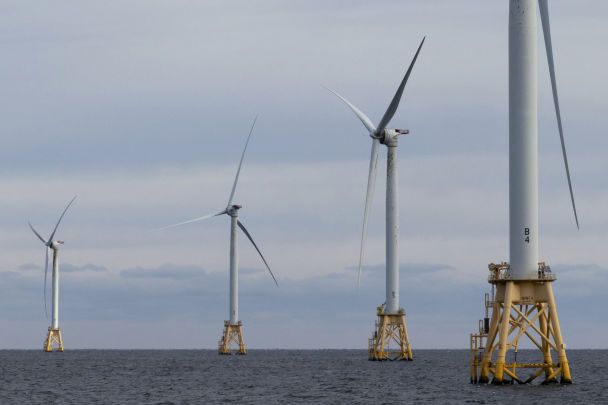About 200 countries gathered at the United Nations summit adopted a plan to develop renewable energy and transition away from coal, oil and gas.
For the first time since countries began meeting three decades ago to combat climate change, diplomats from nearly 200 countries endorsed a global pact explicitly calling for a “phase out of fossil fuels” such as oil, gas and coal, which are dangerously hot. planets.
The sweeping agreement, reached during the hottest year on record, was reached on Wednesday, December 13, after two weeks of bitter debate at the United Nations climate summit in Dubai.
TSN.ua offers you an adaptation of The New York Times material, which analyzes the consequences of the decision for our planet.
Compromise
European leaders and many of the countries most vulnerable to climate disasters have pushed for language calling for a complete “phase out” of fossil fuels. But the proposal has faced strong opposition from major oil exporters such as Saudi Arabia and Iraq, as well as fast-growing countries such as India and Nigeria.
Eventually, negotiators reached a compromise: a new agreement calls on countries to accelerate the global phase-out of fossil fuels this decade in a “fair, orderly and equitable manner” and eliminate carbon dioxide emissions entirely until the middle of the century.
It also calls on countries to triple the amount of renewable energy sources such as wind and solar power installed worldwide by 2030 and to cut emissions of methane, a greenhouse gas more potent than carbon dioxide gas, in the short term.
While previous UN climate agreements have called on countries to reduce emissions, they have avoided directly mentioning the words “fossil fuels,” even though burning oil, gas and coal is the main cause of global warming.
“Humanity has finally done what is long, long, long overdue,” said Wopke Hoekstra, the European climate commissioner. – 30 years – 30 years! – we spent to arrive at the beginning of the end of fossil fuels.”
Agreement without strict language
The new agreement is not legally binding and cannot on its own compel any country to act. But many politicians, environmentalists and business leaders gathered in Dubai hope it will signal to investors and policymakers that the shift away from fossil fuels is unstoppable.

Over the next two years, each country must submit a detailed official plan on how it intends to reduce greenhouse gas emissions by 2035.
“This is not a transition that will happen from one day to the next,” Susanna Muhammad, Colombia's environment minister, said this week. — The goals of the economy and society depend on fossil fuels. Fossil capital will not disappear just because we made a decision.”
But, she added, the agreement sends “a strong political signal that this is the right path.”
Diplomatic victory for the UAE
The agreement is a diplomatic victory for the United Arab Emirates, the oil-rich country that hosted the talks at a glitzy, sprawling exhibition center in Dubai under a smoky sky just 17 kilometers from the world's largest gas-fired power plant.
Sultan Al Jaber, the Emirati official and oil executive who chaired the talks, faced complaints of a conflict of interest and succumbed to early calls for his resignation. The summit was flooded with a record number of fossil fuel lobbyists. Al Jaber's Abu Dhabi National Oil Company is investing at least $150 billion over the next five years to increase drilling.
But Al Jaber also called the phase-out of fossil fuels inevitable and bet that he could persuade other oil-producing countries to sign a major new climate agreement.
“We worked collectively throughout the night and early morning to reach a consensus,” Al-Jaber said on Wednesday morning, December 13, to a room full of negotiators applauding him. “I promised that I would roll up my sleeves. We have the foundation to create transformational change.”
Scientists' forecasts
It remains to be seen whether countries will comply with this agreement. Scientists say countries need to cut greenhouse gas emissions by about 43 percent over this decade if they hope to limit overall global warming to 1.5 degrees Celsius above pre-industrial levels. Beyond that level, scientists say, people may have difficulty adapting to rising sea levels, wildfires, extreme storms and drought.
However, global fossil fuel emissions have soared to record highs this year, countries are on track to reduce this pollution by less than 10 percent this decade, and the world has already warmed by more than by 1.2 degrees Celsius.
Many scientists say it is now unlikely that humanity will be able to limit warming to 1.5 degrees, although they add that countries should still do everything they can to keep warming lower.
Representatives of small islands whose shores are disappearing under water and whose wells are filling with salt water said the new climate agreement has “many loopholes” and is not enough to prevent disaster.
“This process has failed us,” said Anne Rasmussen, Samoa's lead negotiator, who complained that the agreement was approved while his group of 39 small island states was not in the room. – The required course correction was not provided.”
Why preliminary agreements didn’t work
Past climate agreements have often discouraged meaningful action. In 2021, the countries reached an agreement in Glasgow to “phase out” coal-fired power stations. But within a year, Britain approved the construction of a new coal mine, and since then, global coal use has soared to record levels.
As negotiators with the United States and Europe pressed for an agreement to cut fossil fuel use, environmentalists pointed out that U.S. oil production was soaring and European countries were spending billions for new terminals for the import of liquefied natural gas against the backdrop of the war in Ukraine.
U.S. officials said Congress recently approved hundreds of billions of dollars for the deployment and production of clean energy technologies such as solar panels, electric vehicles and heat pumps that will help curb the world's appetite for oil, coal and natural gas.
Ways to reduce emissions
As bulging-eyed diplomats in Dubai debated the wording of the text in late-night meetings, they were forced to grapple with the realities and stark challenges of the global transition away from fossil fuels in more detail than ever before .
Saudi Arabia and oil and gas companies have argued that negotiations should focus on emissions rather than fossil fuels, saying technologies such as carbon capture and storage can capture and bury greenhouse gases gases from oil and gas and allow their further use. Countries are currently trying to implement this technology on a large scale.
Other world leaders have denied that the best way to cut emissions is to switch to cleaner forms of energy such as solar, wind or nuclear, reserving carbon capture for rare situations where alternatives are not available.
The final text calls on countries to speed up carbon capture, “especially in sectors that are difficult to reduce emissions.” But some negotiators expressed concern that fossil fuel companies could use the language to continue emitting more emissions while promising to capture emissions later.
“Transition fuels”
The final agreement also includes language recognizing that so-called transition fuels can play a role in the clean energy transition and energy security. “Transition fuels” were widely seen as code for natural gas, something gas-producing countries such as Russia and Iran had called for. Some countries seeking to end the use of fossil fuels were upset by the inclusion of the term.
A previous draft of the agreement called on countries to stop issuing permits for new coal-fired power plants if they failed to capture and store their carbon dioxide emissions. But countries such as China and India, still building large new coal-fired power plants to meet rising energy demand, have opposed restrictions that are too stringent. Language about new coal-fired power plants was removed from the final version.
Read the leading news of the day:
Criticism
Many African countries have sharply criticized the idea that all countries should reduce their use of fossil fuels at the same rate. They argued that without external financial assistance, African countries would have to exploit their oil and gas reserves to become rich enough to finance the clean energy transition.
“Asking Nigeria, or even Africa, to phase out fossil fuels is like asking us to stop breathing without life support,” said Ishak Salako, Nigeria’s environment minister. “This is unacceptable and impossible.”
Some world leaders have criticized wealthy emitters such as the US, Europe and Japan for not providing enough financial support to low-income countries to help them transition away from fossil fuels.
In regions such as Africa, Latin America and Southeast Asia, developing countries are facing skyrocketing interest rates, making it difficult to finance new renewable energy projects.
The new agreement recognizes the importance of financing, but the countries agreed to resolve the issue at the next round of climate talks in Baku next year.
“The text calls for a transition away from fossil fuels in this critical decade, but the transition is neither funded nor equitable,” said Mohamed Adow, director of the environmental group Power Shift Africa. “We still lack the funding to help developing countries decarbonize, and we must place high expectations on wealthy fossil fuel producers to be the first to move away from them.”
“A small first step”
At the same time, war and turmoil in other parts of the world are casting a shadow over climate negotiations already marked by sharp divisions between countries. Traditionally, UN rules require that every agreement at a climate summit be unanimously approved, and any country can undermine the consensus.
For weeks, diplomats struggled to even agree on the location of next year's summit as Russia continued to veto Eastern European countries that criticized the invasion of Ukraine. Developing countries in conference rooms were furious when the US vetoed the UN ceasefire resolution in Gaza.
After the agreement was reached on Wednesday, December 13, John Kerry, President Biden's special climate envoy, said it showed that countries can still work together despite their sharp differences .
“In a world of war in Ukraine and the Middle East, and all the other challenges of a planet in its infancy, the moment has come when multilateralism has come together, and people who have rejected individual interests, tried to define the common good,” Kerry said. “It’s hard, it’s hardest in diplomacy, it’s hardest in politics.”
As workers dismantled the coffee kiosks at the Dubai climate conference to make way for Winter City, a Santa extravaganza set to open on Friday, December 15, many climate experts were already expected the next major climate meetings. Governments still have to take concrete steps to increase clean energy financing, including overhauling the World Bank and other international financial institutions.
“Advocates for a rapid transition away from fossil fuels, both small island states and large economies, have pushed the rest of the world to realize that this transition cannot be stopped,” said Tom Evans, advisor on climate policy at the research organization E3G. “But this is just a small first step.”
Read also:
Related topics:
More news

